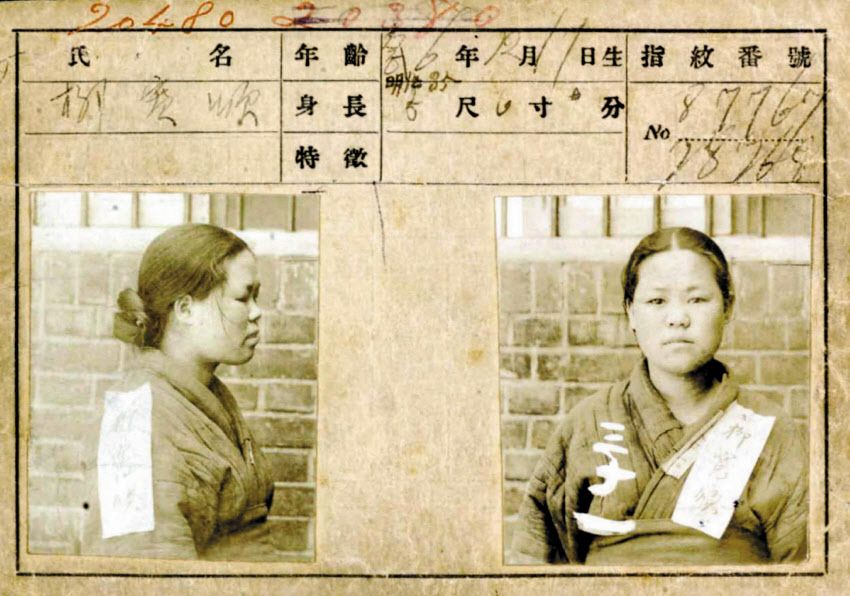Today is March 1st, the day that we commemorate the movement by Koreans where they called for independence from Japan. This day truly marks an important moment in Korean history as it jump-started a united effort by Korean people for independence.
In previous years, we honored March 1st by sharing its history in our blog. We’ve also discussed the “Freedom Fighters” who participated in the March 1st movement and the most famous activists from this time. This year, we’ll be sharing some quotes from these Freedom Fighters that have passed the test of time and are still relevant today.
Ryu Gwansun:
Yu Gwansun (1902-1920) was a patriot who joined the March 1st Movement while she was still only a high school student. She participated in peaceful rallies alongside other protesters in Seoul on March 1 and 5, 1919, and then helped to organize a rally in her hometown a few weeks later. Soon after, she was arrested by the Japanese military police for her actions and given a three-year sentence in prison. Yu later passed away at the age of 17 from injuries she received from being tortured.
"I took fair and just action to reclaim my country, yet you respond with force and bloodshed. If anyone has committed a crime isn't it you, the Japanese, who stole our country illegally?"
“Even if my fingernails are torn out, my nose and ears are ripped apart, and my legs and arms are crushed, this physical pain does not compare to the pain of losing my nation. My only remorse is not being able to do more than dedicating my life to my country.”

Kim Gu:
Kim Gu (1876-1949) was a Korean statesman, politician, and a prominent leader, who dedicated his life to lifting up and freeing his home country. Kim’s activist work spanned from before Korea had been formally annexed by Japan to after the country had secured its independence; culminating in his becoming the sixth, ninth, and last President of the Provisional Government of the Republic of Korea.
"If God asked me what was my wish, I would reply unhesitatingly, 'Korean independence.' If he asked me what was my second wish, I would again answer, "My country's independence."If he asked me what was my third wish, I would reply in an even louder voice, 'My wish is the complete independence of my country, Korea.' My fellow brethren. This is my only wish. I have lived seventy years of my life for this wish, am living my life for this wish, and will live my life only to fulfill this wish."
“I want our nation to be the most beautiful in the world. By this I do not mean the most powerful nation. Because I have felt the pain of being invaded by another nation, I do not want my nation to invade others. It is sufficient that our wealth makes our lives abundant; it is sufficient that our strength is able to prevent foreign invasions. The only thing that I desire in infinite quantity is the power of a noble culture. This is because the power of culture both makes ourselves happy and gives happiness to others.”

Dosan Ahn Changho:
Ahn Chang-ho (1878-1938) was a Korean independence activist and one of the early leaders of the Korean-American immigrant community in the United States. Ahn Chang-ho is widely considered to be one of the key moral and philosophical leaders of Korea during this time. Before and during the Japanese occupation of Korea, Ahn called for the moral and spiritual renewal of the Korean people; and highlighted education as one of the important components in their struggle for independence.
"An organization without respect for the truth is like a body without blood, or a brick fence without mortar. An organization without sympathy and love for its principles, its members and its leaders will eventually fail no matter how rich or strong it is today."
"Thinking there is no one with the right qualification to be a leader means the same as not understanding the principle of cooperation and not wanting to support the leader themselves."

Yoon Bonggil:
Yun Bong-gil (1908-1932) was a Korean independence activist who began fostering hope for independence in his hometown by educating people from rural communities about the issues they faced. He is most well-known for setting off a bomb that killed several Japanese dignitaries in Shanghai's Hongkew Park in 1932. In a letter he left behind in Korea before this incident, he stated to the Korean Patriotic Corps that his motivations were to “redeem the independence and freedom of our country.”
"Once a man leaves the house, he will not return alive until he fulfills his objective."

Ahn Jung-geun:
Ahn Jung-geun (1879-1910) was an activist who assassinated Itō Hirobumi, the Japanese official who had been appointed as Japan's first Resident-General of Korea in 1905 - when the country was held under Japanese jurisdiction but not formally annexed. Before doing so, he cut off his ring finger alongside eleven other activists, signifying a pledge to assassinate someone.
"I have ventured to commit a serious crime, offering my life for my country. This is the behavior of a noble-minded patriot."
"Listen to me. If I die, bury my bones in Harbin Park and when my country finally gains its deserved independence, move me there and have my funeral. Even when I am in heaven, I will be using all my power to assist the Korean independence movement. You all go back home and tell all Koreans living outside the country that they have duties to carry out as Koreans. They should all join to make independence a reality. When I hear the sounds of independence and freedom in heaven, I will dance and sing the independence chant."





Leave a comment